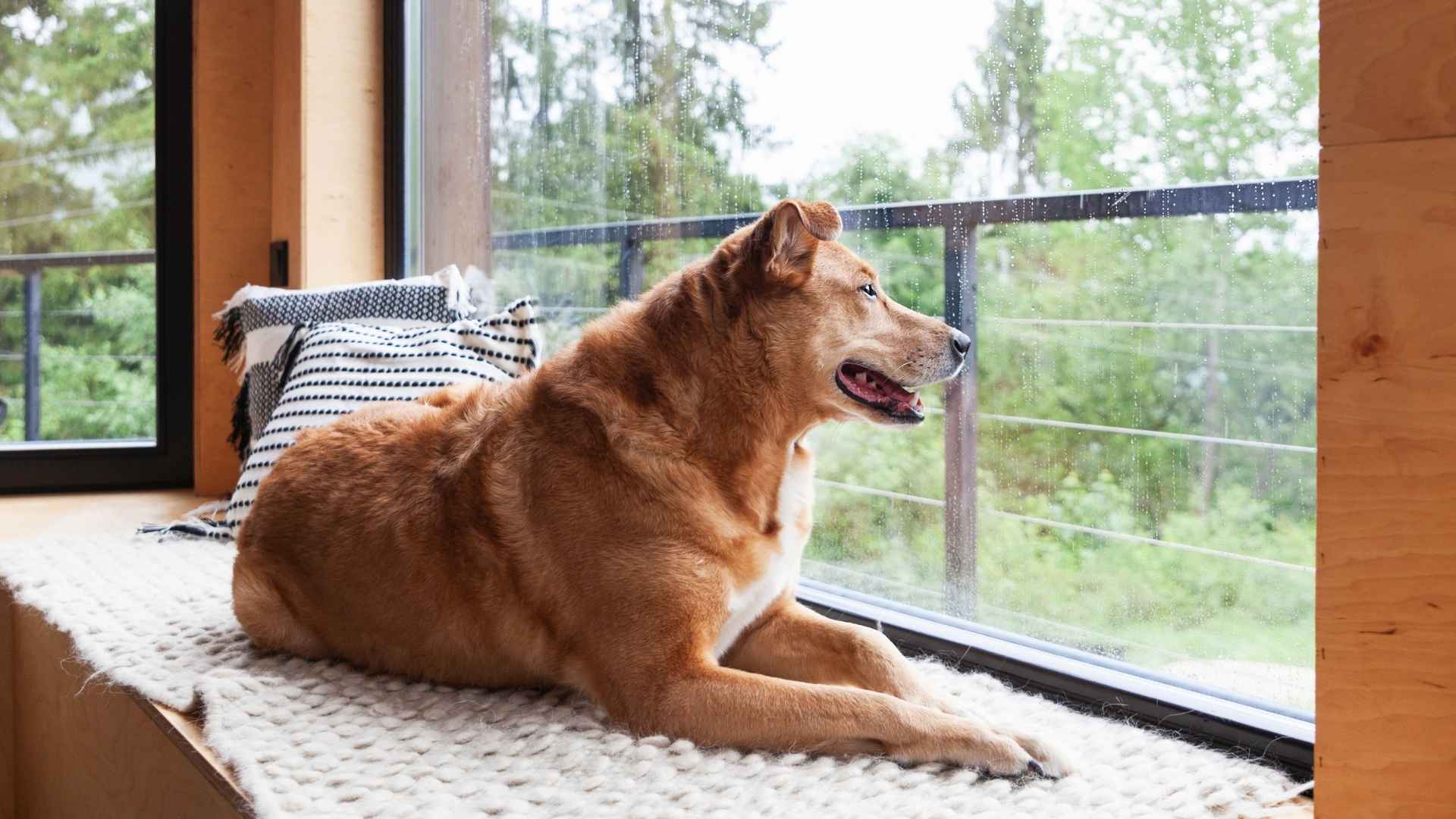In the canine world, some dogs are vocal enough to alert you but not loud enough to drive the neighbors crazy. This perfect balance exists! Some breeds are natural watchdogs, while others just love the sound of their voice. But if you’re looking for a pup that barks just the right amount—not too much, not too little—you’re in the right place.
Moderate barking breeds know when to speak up and when to stay quiet. They’ll let you know when someone’s at the door but won’t turn every leaf falling outside into a full-blown alarm. This makes them ideal for families, apartment dwellers, and anyone who loves a little security without the constant noise.
So, what makes these dogs such great companions? It’s all about temperament, training, and instinct. Some are naturally more reserved, while others can be trained to manage their barking. Ready to find the perfect four-legged friend with the ideal bark-to-silence ratio? Let’s dive in!
Moderate Barking Dog Breeds
1. Borzoi
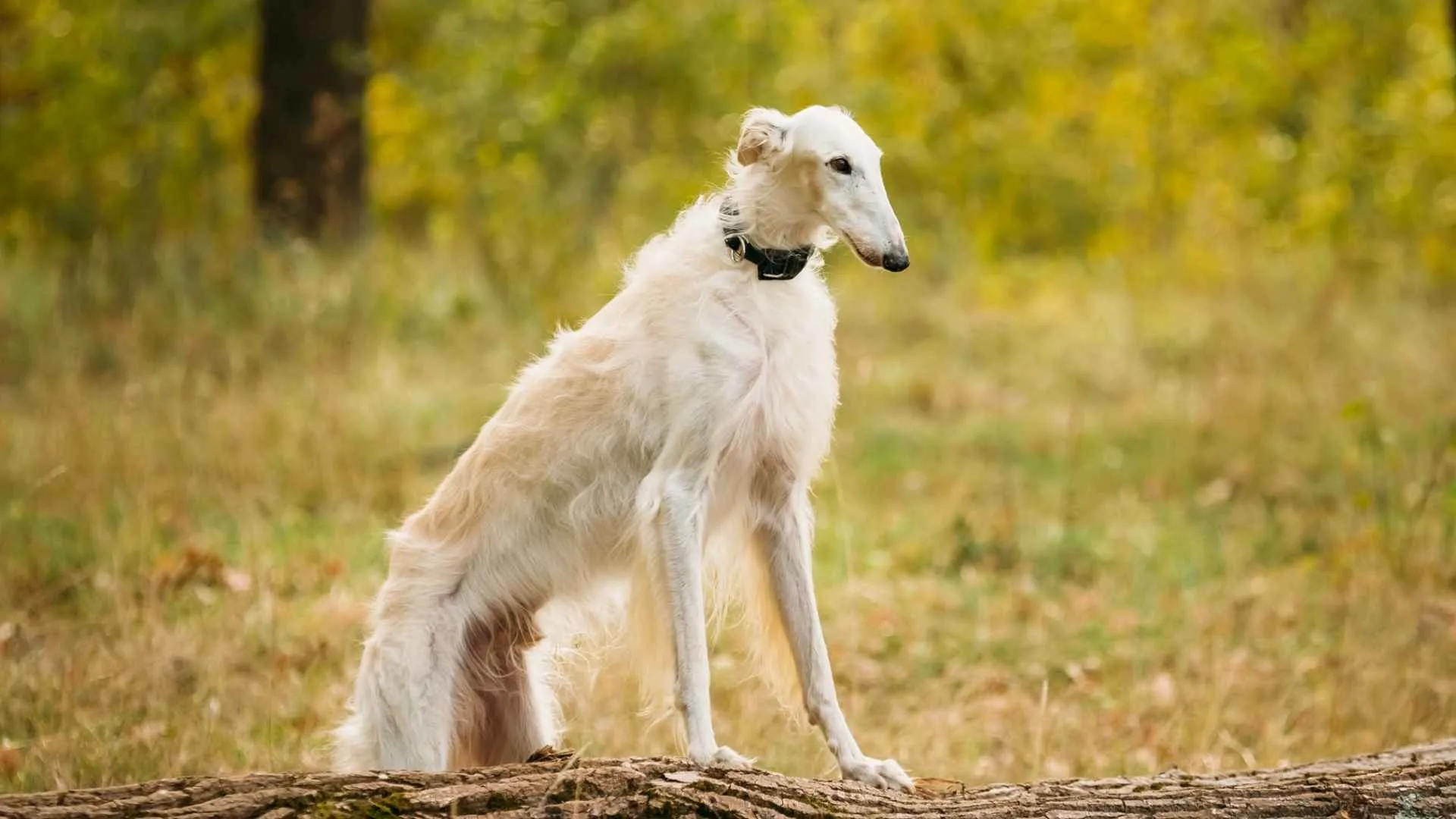
If you’re looking for a dog that won’t turn every little sound into a barking spree, the Borzoi might just be your dream pup! These elegant, long-legged beauties are known for their quiet and reserved nature. They’re not the type to yell at every passerby but will let out a deep, dignified bark if they sense something unusual.
Borzois are selective communicators, unlike hyper-alert breeds that bark at the slightest movement. They’re independent thinkers—meaning they won’t waste energy barking unless there’s a good reason. This makes them great for people who love a peaceful home without constant canine commentary.
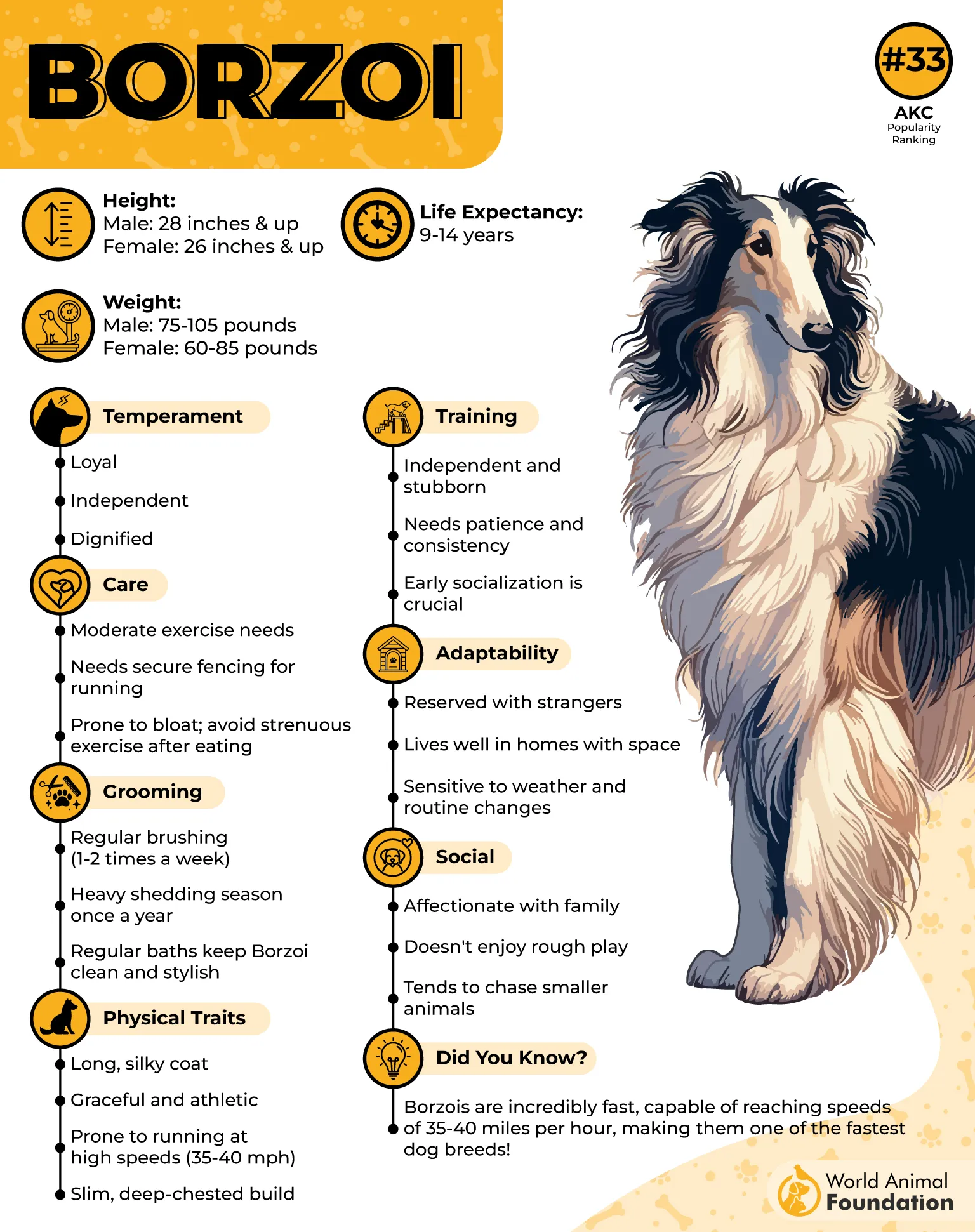
Borzois have an incredibly sharp sense of sight and are bred for hunting and speed. They don’t rely on barking to alert their owners; instead, they use their keen eyesight to assess situations. If they do bark, it’s usually brief and purposeful—almost like a royal decree rather than a frantic alarm.
Despite their large size, these dogs are surprisingly graceful and affectionate, states PDSA. They bond deeply with their families but aren’t the clingy type. Instead of barking for attention, they’ll quietly follow you around the house, offering companionship without demanding constant interaction.
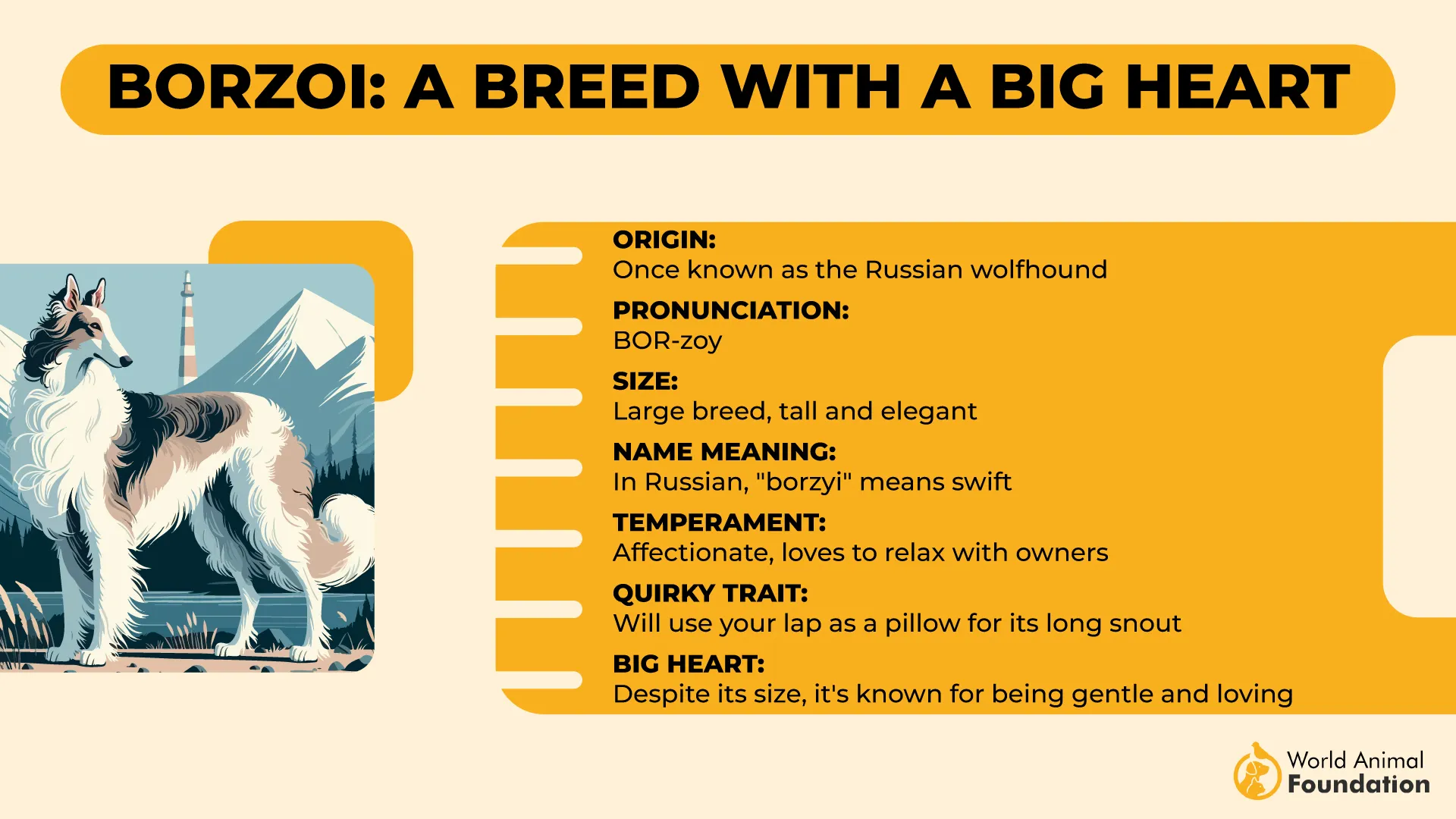
While they don’t bark excessively, they do need exercise. A bored Borzoi can become destructive, so regular runs in a secure area are necessary. Since they were originally bred to chase fast-moving prey, they have an instinct to sprint—and trust us, you won’t catch them if they take off!
Fun Fact: The Borzoi was once a favorite among Russian nobility and was often gifted to royalty. Their name means “swift” in Russian—fitting for a dog that moves like the wind!
2. Australian Shepherd
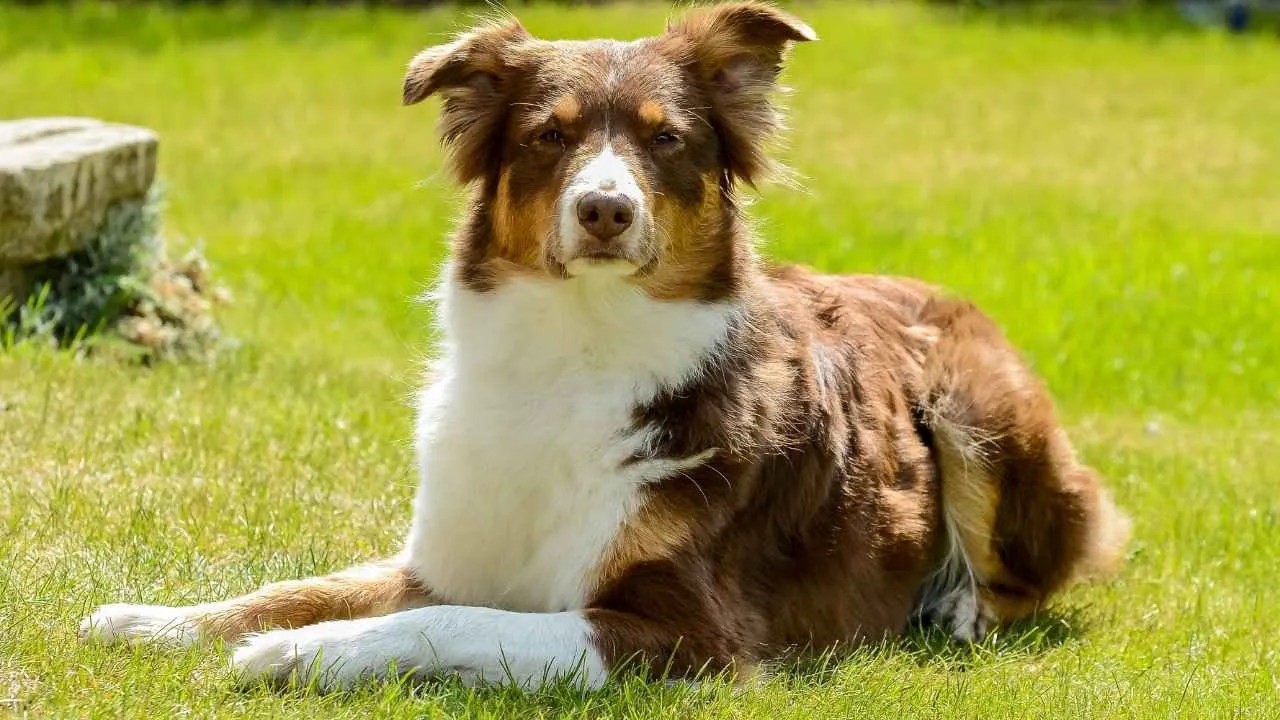
Australian Shepherd is a dog that’s alert but not annoyingly loud. A breed that strikes the perfect balance between being vocal and knowing when to stay quiet. These intelligent dogs don’t bark just for fun, but they’ll let you know if something’s off.
PetMD states that Aussies are incredibly smart, meaning they bark purposefully. Unlike some dogs that yap at every squirrel, an Aussie assesses the situation before speaking up. They’ll give a few sharp barks to alert you of something unusual, but they settle down once they know everything’s okay.
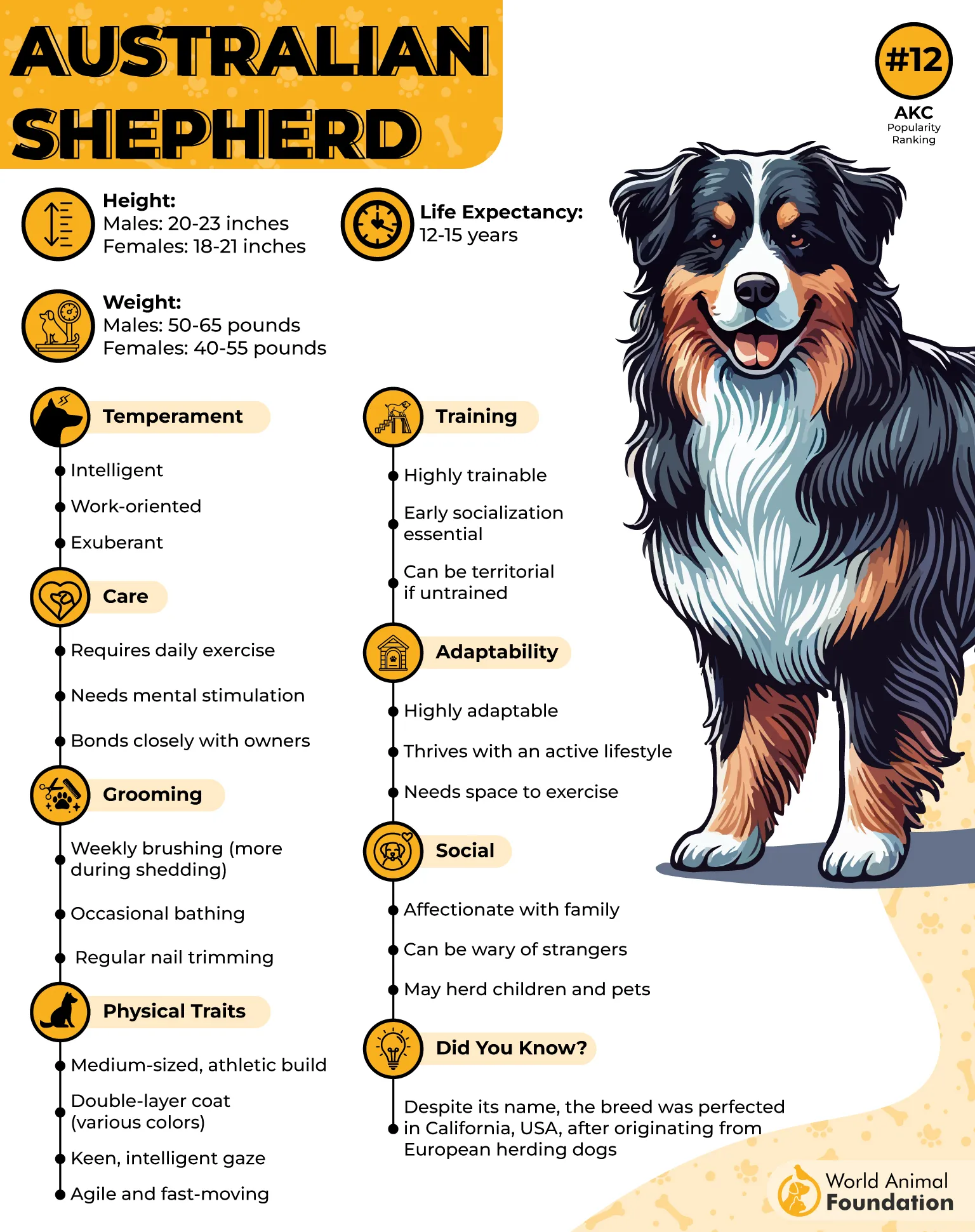
Since they were bred to herd livestock, these dogs have a strong sense of duty. They use barking strategically—to communicate, control movement, and keep order. If they feel their “pack” (a.k.a. your family) is in danger, they’ll vocalize just enough to warn you, not to create unnecessary chaos.
One thing that sets Australian Shepherds apart is their ability to learn commands quickly. Teaching them a “quiet” cue is usually a breeze because they thrive on structure and guidance. Aussies love mental stimulation, so the more engaged they are, the less likely they’ll bark out of boredom. A tired Aussie is a peaceful Aussie!

Despite their working-dog mentality, Aussies are affectionate companions. They’re naturally in tune with their owners and often respond to your mood. If you’re relaxed, they’ll match your energy; if you’re excited, they might bark along with you. Ever had a dog that feels like it understands you better than some people? That’s an Aussie’s specialty!
3. Shiba Inu

Shiba Inu is an independent, clever dog that only barks when necessary. A breed known for its composed nature and well-timed vocalizations. Unlike yappy dogs that fill the house with noise, Shibas are selective barkers—they prefer to assess a situation first rather than react instantly.
One of the unique things about Shibas is their reserved yet expressive personality. They don’t use barking as their main form of communication. Instead, they rely on body language, subtle sounds, and their signature “Shiba scream”—a high-pitched noise when extremely excited or frustrated. Shiba Inu is a dog that communicates like a drama queen without always being loud.
Their fox-like intelligence means they tend to think before they act. Unlike traditional watchdogs that bark to sound the alarm, Shiba analyzes the situation first. According to Petplan, they are alert, loyal, and lively dogs. Is it an actual threat or just the mailman doing his daily rounds? This breed isn’t about unnecessary drama—they’re all about efficiency.
That said, training plays a huge role in shaping their behavior. While naturally quiet, an under-stimulated Shiba can become vocal out of frustration. Giving them puzzles, interactive toys, and structured exercise prevents unnecessary noise.
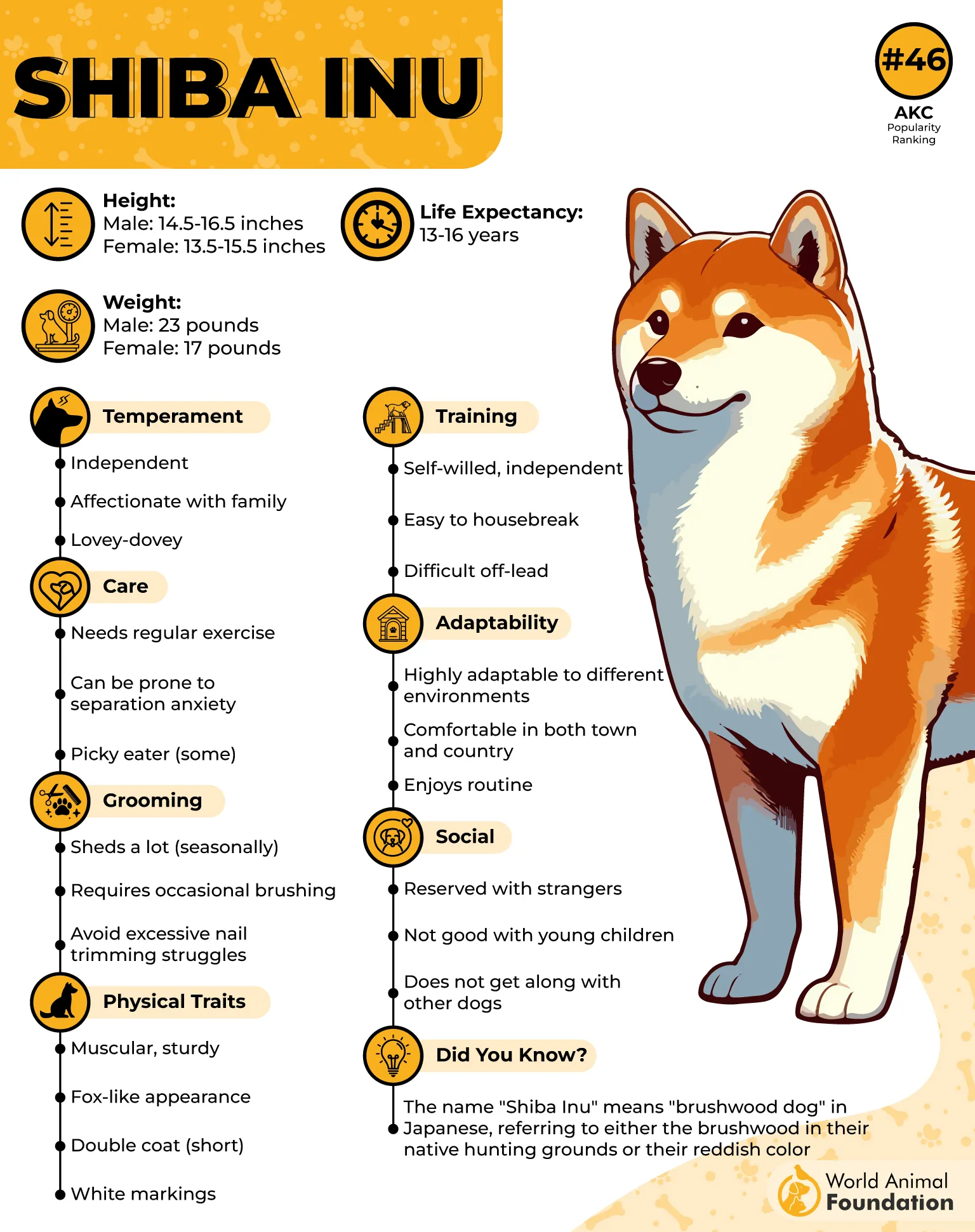
Shibas are naturally clean dogs, often compared to cats because of their grooming habits. They don’t whine for no reason and certainly won’t bark unless there’s something to say. If they vocalize, it’s usually to communicate excitement, discontent, or something that catches their attention, like an unexpected visitor.
4. Scottish Deerhound
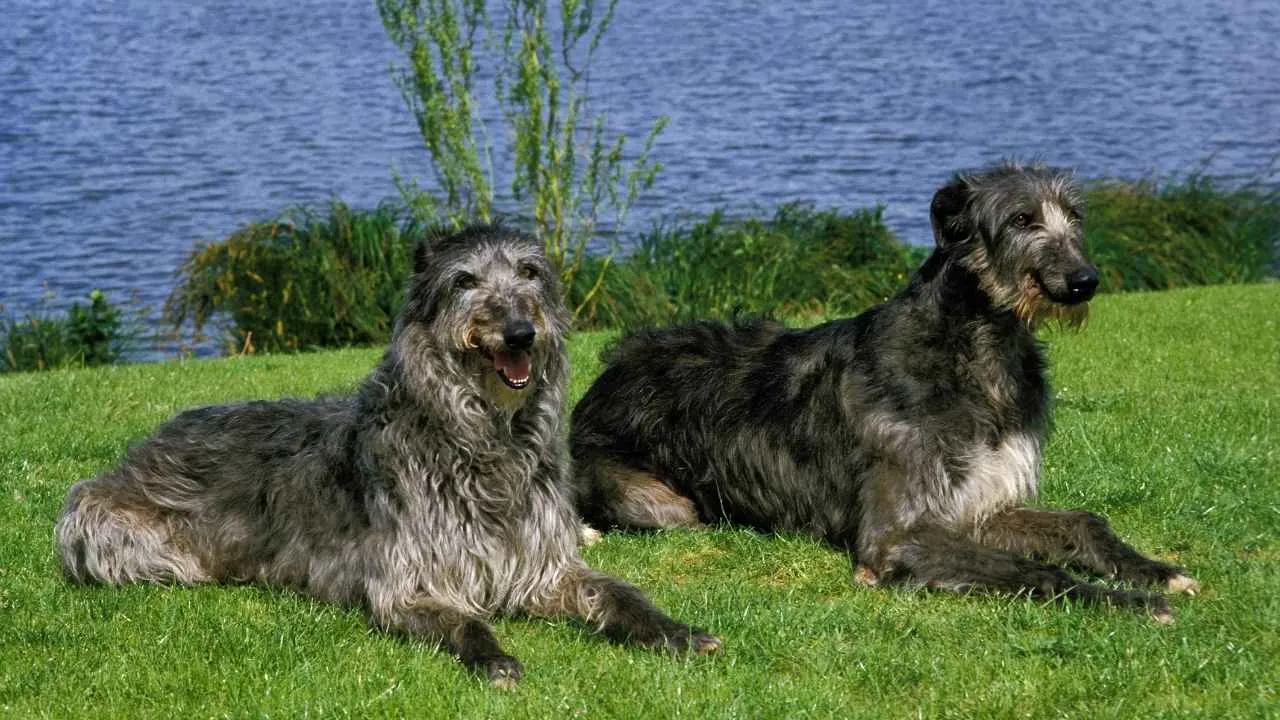
The Scottish Deerhound is a regal, affectionate dog and doesn’t fill your home with endless barking. A gentle giant with a surprisingly quiet nature. Unlike some dogs that bark at every sound, Deerhounds prefer to observe rather than react. They do not sound the alarm unless there’s a good reason.
Deerhounds have an almost aristocratic patience about them. Bred for hunting in the Scottish Highlands, they’re used to waiting, watching, and acting only when necessary. This translates into a calm household presence—no random barking at passing cars or birds outside the window.
Despite their imposing size, Scottish Deerhounds aren’t big on guarding. According to Hill’s Pet, they’re friendly with almost everyone and don’t see the need to bark at strangers. They rely more on their silent, watchful nature to assess situations rather than making noise. If they do bark, take note because something unusual is happening.
Since they were bred to run rather than guard, Deerhounds are naturally quiet companions. They don’t feel the need to vocalize constantly because their job was never about sounding an alarm. Instead, they excel in speed, grace, and silent determination, making them one of the calmest large breeds you can have at home.
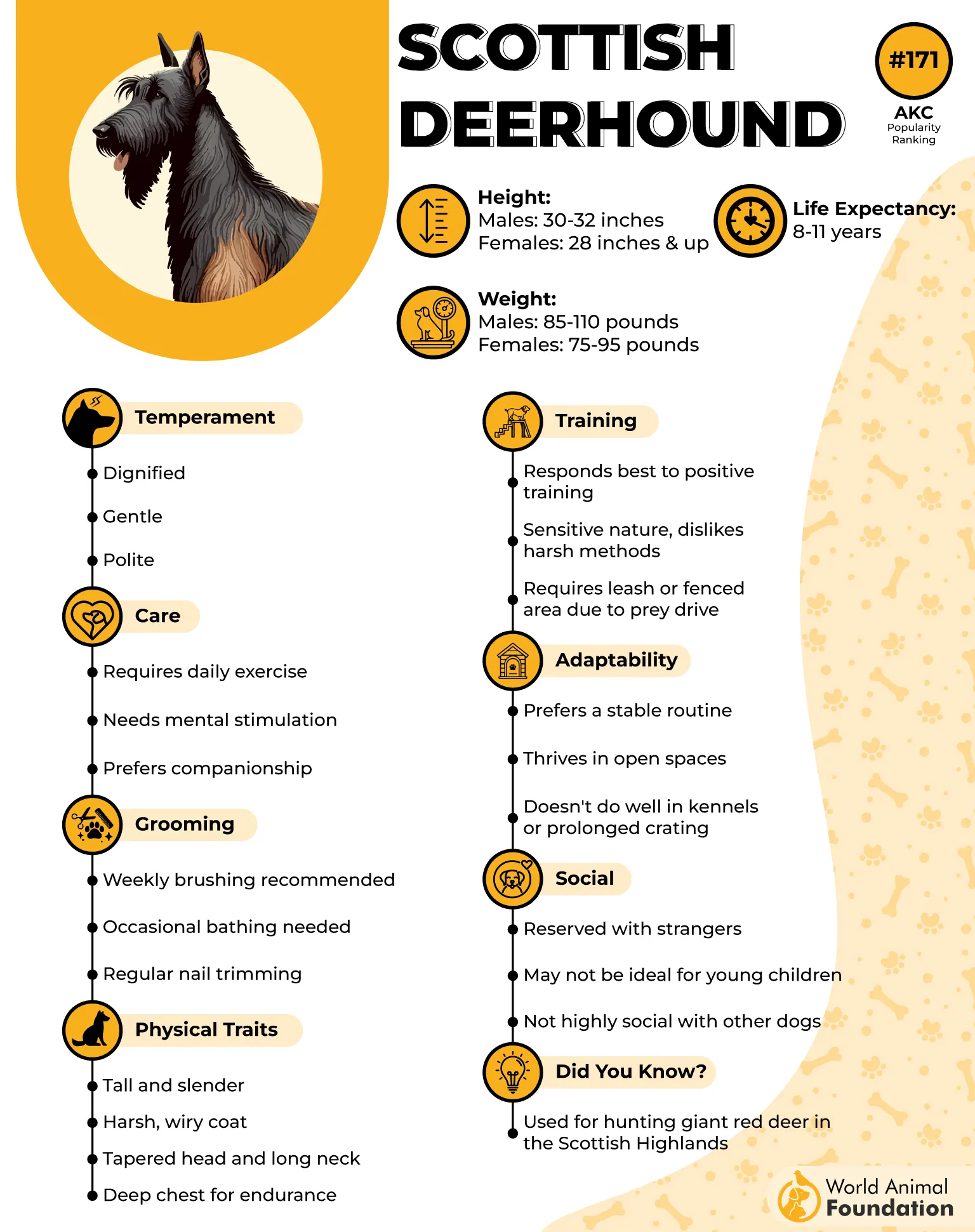
Training a Deerhound is different from training other breeds. They’re independent thinkers and don’t always see the point in responding to commands like “speak” or “quiet.” Instead, they thrive in a home with space to roam and a peaceful environment. The deerhound is a dog that acts more like a laid-back royal than a noisy watchdog.
5. Basenji
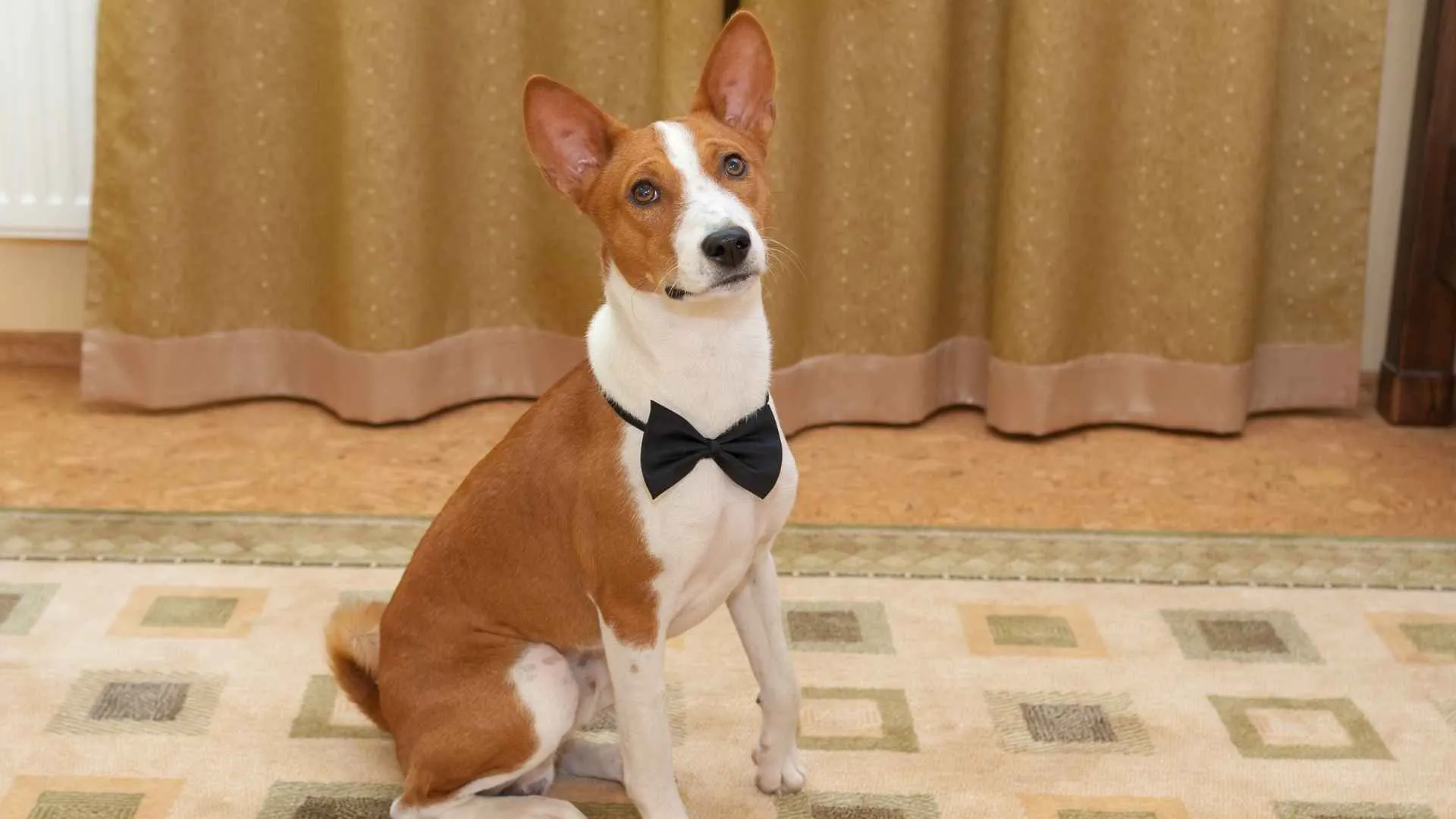
The basenji is a dog that doesn’t bark but still finds ways to express itself. They are often called the “barkless dog” because it doesn’t produce traditional barking sounds. Instead, it communicates with a mix of yodels, whines, and unique vocalizations—a quirk that makes this breed stand out.
Unlike other dogs that bark for attention or excitement, the Basenji has a more refined approach to communication. It prefers to use body language, soft chuffs, or playful whines to express itself. However, if something truly unusual happens, you’ll hear its signature yodeling “barroo” sound, which is as entertaining as rare.
Despite their quiet nature, they’re not shy. They’re bold, curious, and full of energy, states Purina. They don’t bark to announce their excitement, but they’ll show it through their actions—zooming around the house, jumping onto furniture, and playfully “talking” in their signature yodels when they’re happy.
Since Basenjis are so intelligent and independent, training requires creativity. They don’t bark for attention but will use their expressive faces, playful antics, and occasional yodels to communicate their point. They’re known escape artists, so keeping them mentally stimulated is key to preventing mischief.
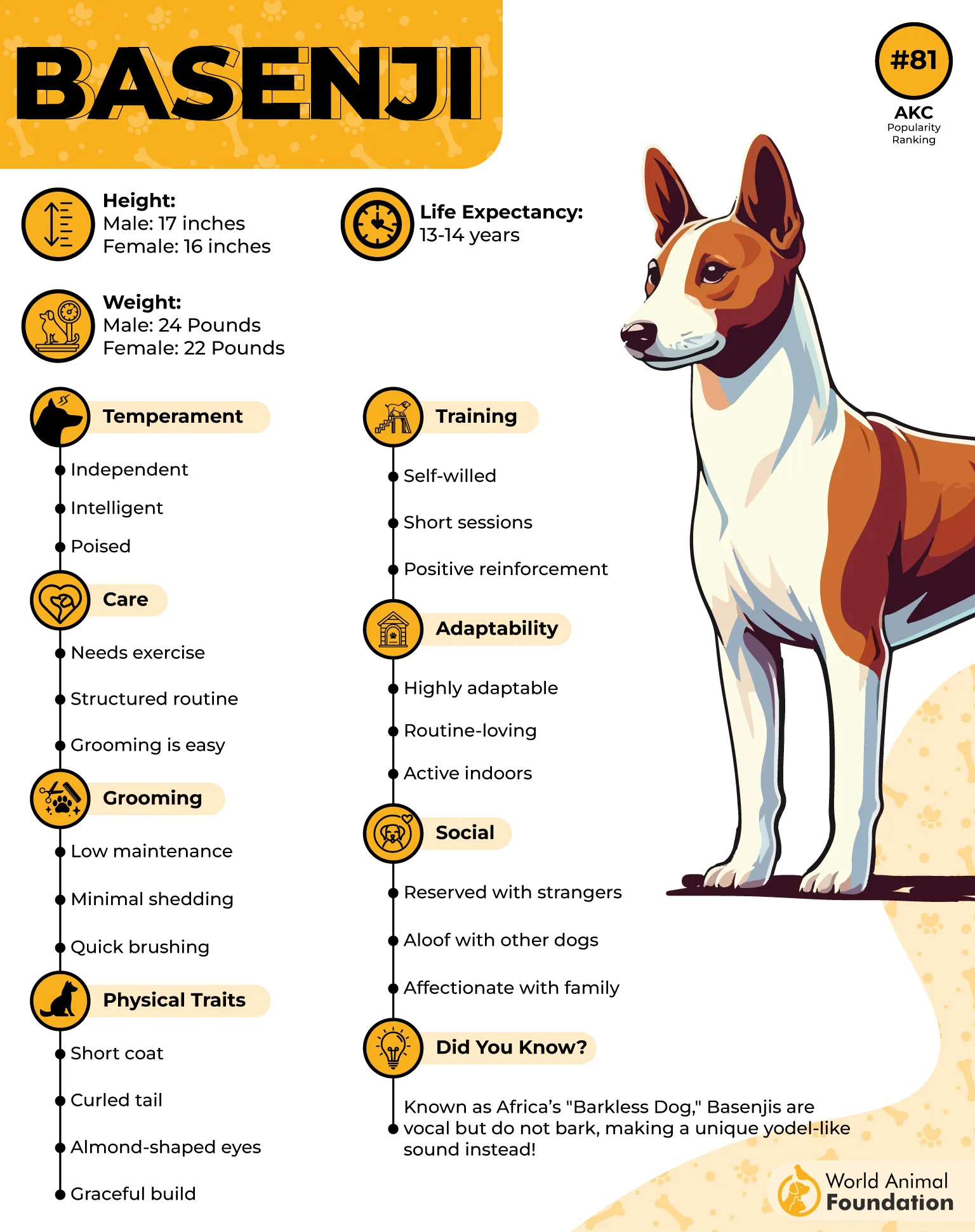
Basenjis are also one of the oldest dog breeds, with a history dating back thousands of years to ancient Egypt and Central Africa. Their quiet, controlled behavior made them excellent hunters, and today, they bring that same thoughtful, low-noise personality into homes.
6. Bernese Mountain Dog
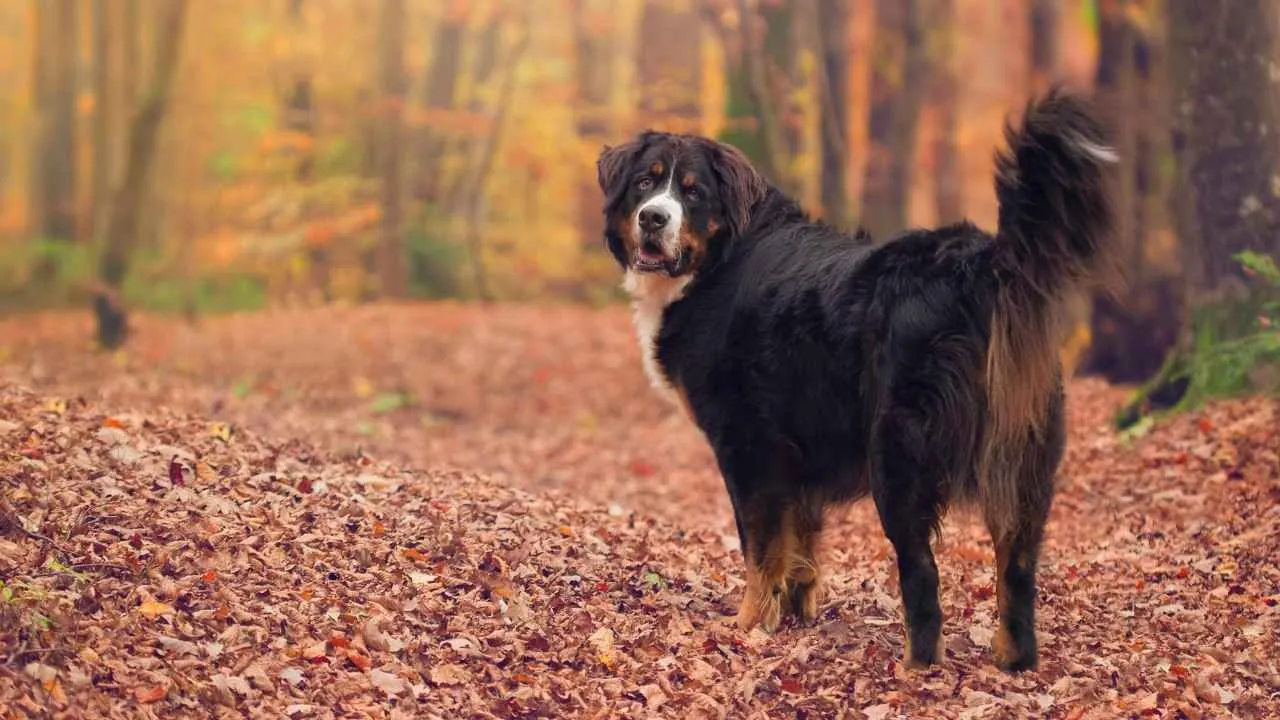
Berners were originally bred in the Swiss Alps to work alongside farmers, pulling carts and guarding livestock. Because of this, they developed a strong sense of judgment, barking only when needed. They don’t waste energy on constant noise, making them a low-barking, high-loyalty companion.
Despite their large size, Berners are incredibly gentle and affectionate, says AKC. They love being close to their people, often leaning against you or resting their massive paws on your lap. While they’re protective, they’re not aggressive barkers—if they do bark, it’s typically a deep, deliberate sound that carries meaning.
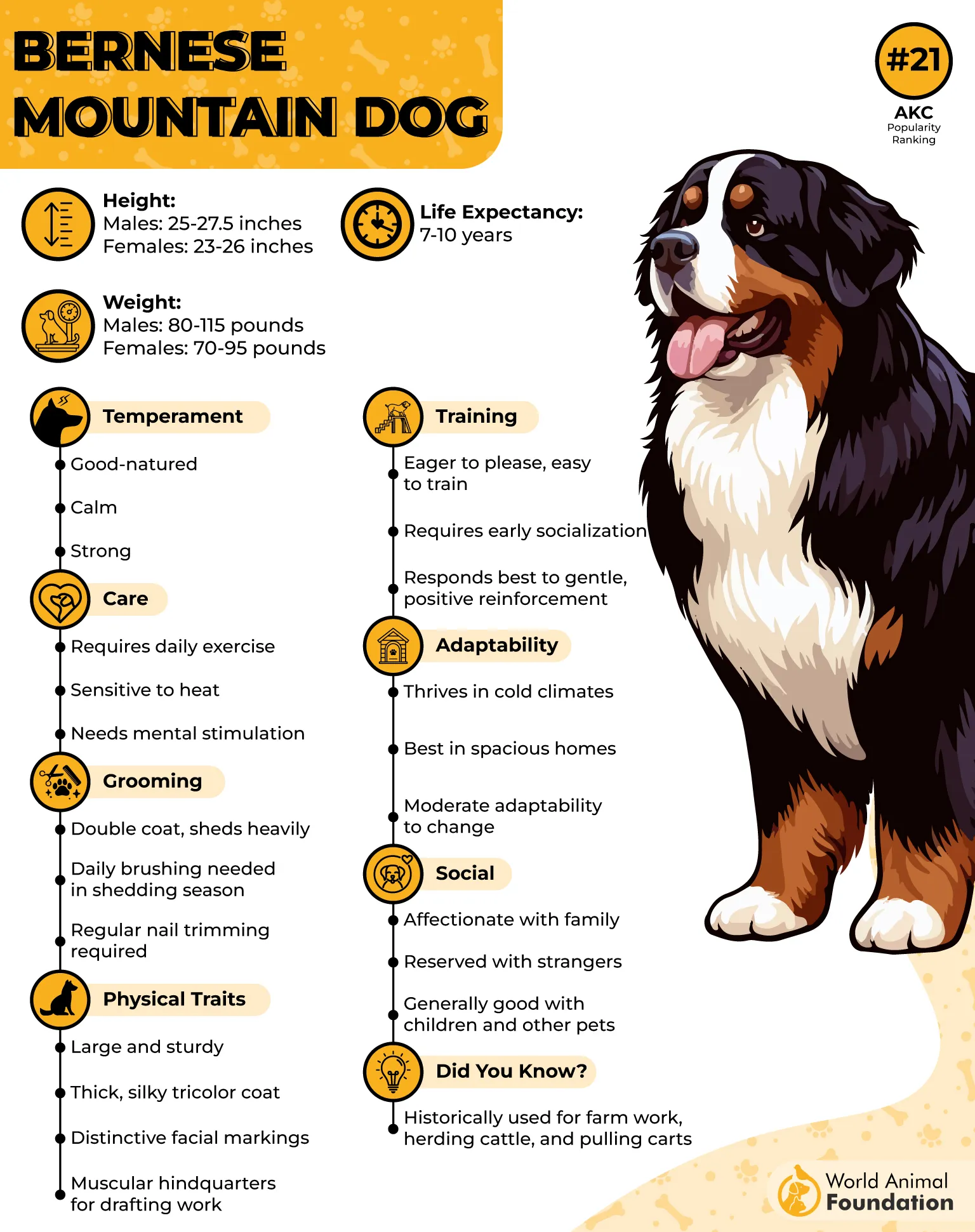
One of the most lovable traits of a Berner is its friendly personality. They’re naturally social, enjoying time with family, children, and even other pets. Unlike some guard dogs that bark out of suspicion, Berners rely on their calm presence and confidence to assess situations.
Although quiet, Berners do have a playful side. They love outdoor adventures and can be quite goofy when they’re happy. Instead of barking to express excitement, they show it through big, joyful movements, tail wags, and affectionate nudges. Their large size makes them look intimidating, but underneath, they’re just big softies with a quiet charm.
While they don’t bark often, Berners love to “talk” in their own way—through deep sighs, happy grumbles, or contented snorts. Their communication style is more expressive than vocal, making them a wonderful match for anyone who loves a peaceful but engaging pet.
7. French Bulldog
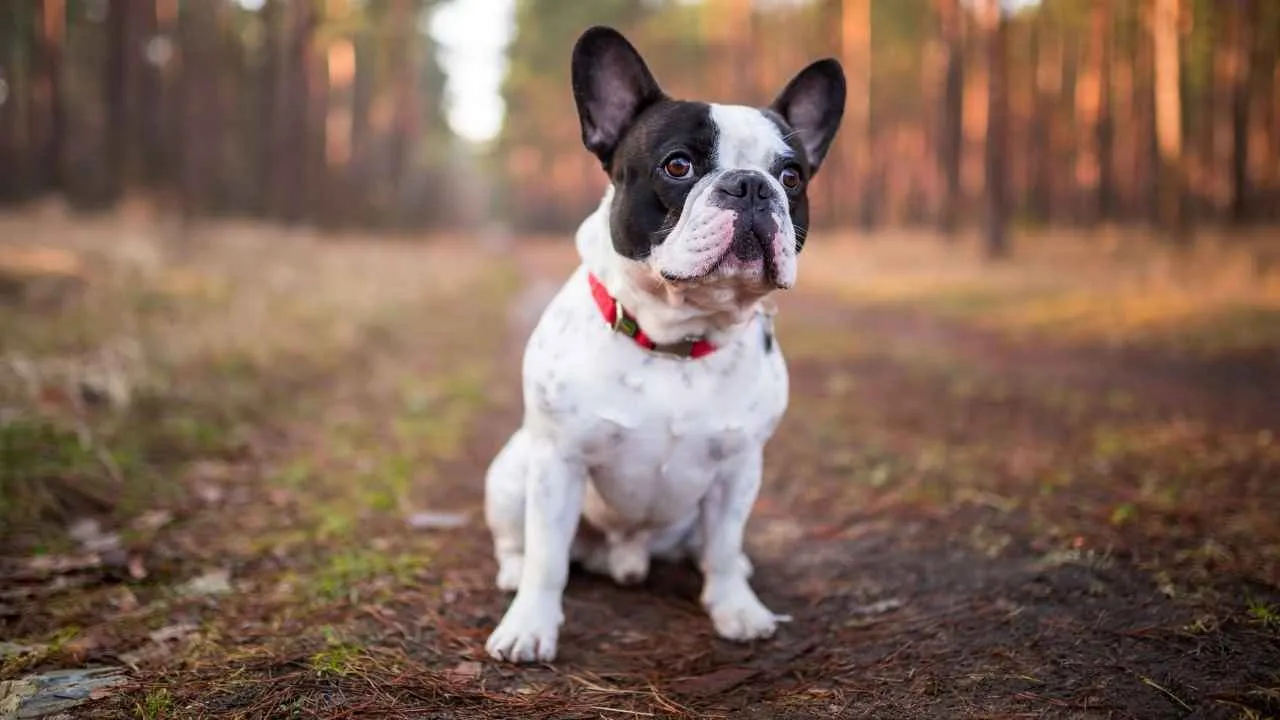
French Bulldog is a dog that’s small in size but big on charm, without the constant barking. These adorable, bat-eared companions are known for their quirky personalities, affectionate nature, and surprisingly quiet demeanor. Frenchies prefer to communicate in grunts, snorts, and playful expressions rather than endless yapping.
French Bulldogs have a laid-back, go-with-the-flow attitude, making them one of the best apartment-friendly dogs. They don’t need to bark at passing strangers or unfamiliar noises unless something catches their attention. Instead of being a loud watchdog, they use their alert but calm nature to assess situations before reacting.
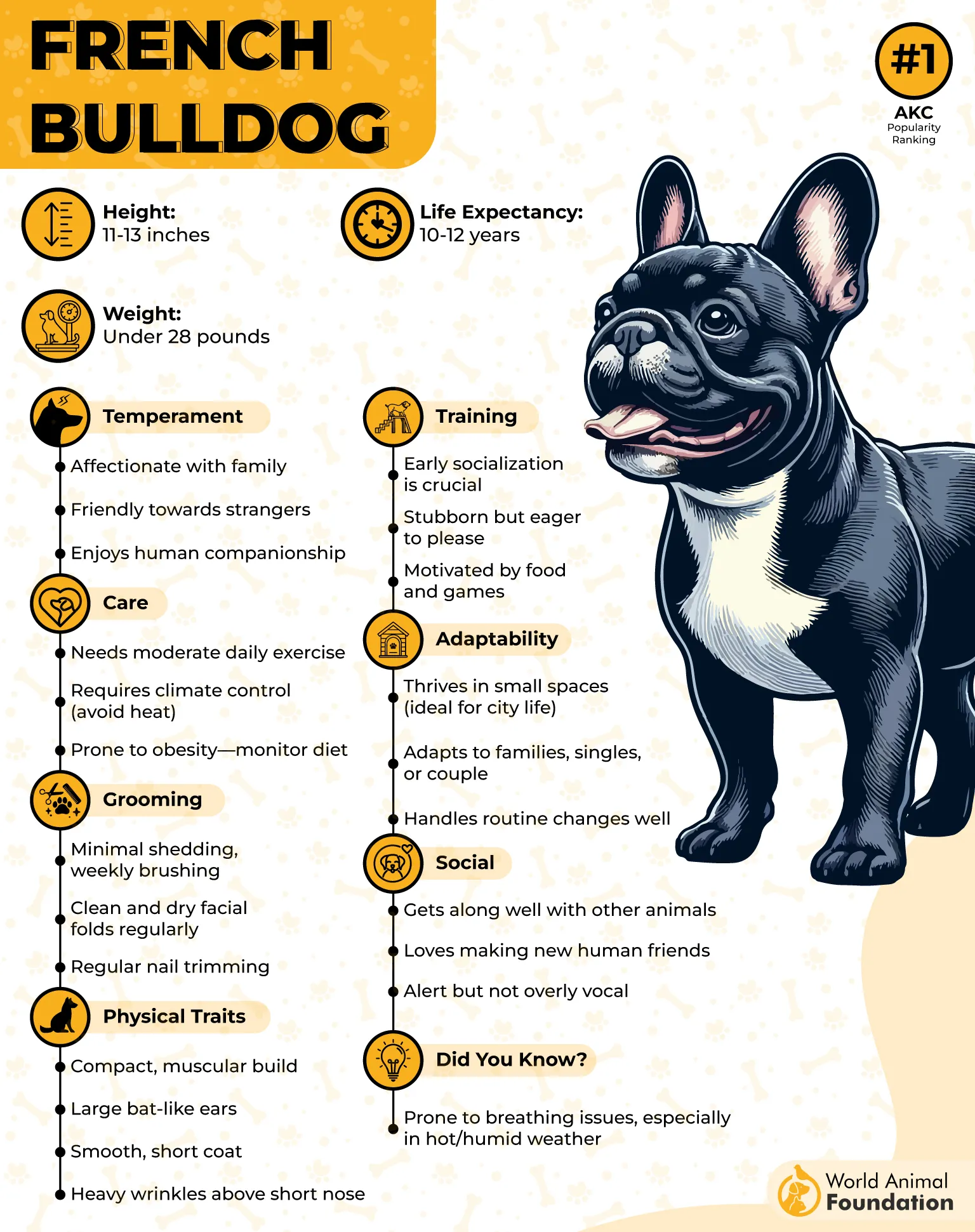
Despite their quiet nature, Frenchies are full of personality and eager to please, states PDSA. They’re natural entertainers, often making their owners laugh with their silly antics, zoomies, and expressive faces. Instead of barking for attention, they rely on their playful behavior and affectionate nudges to keep you engaged.
French Bulldogs don’t bark excessively because of their deep attachment to their owners. They love being with their people and prefer to stay close rather than act as watchdogs. They might let out a few short barks if they sense something unusual, but they’re more likely to greet guests with excitement rather than suspicion.
Frenchies are fantastic companions for city life, families, and seniors because of their low-maintenance and quiet nature. They don’t need excessive exercise, just playtime and cuddles to stay happy. Their ability to stay relaxed and quiet makes them one of the best choices for peaceful households.
Fun Fact: French Bulldogs are so quiet that some owners teach them to “speak” on command—otherwise, they might hardly ever bark!
Conclusion
For dog lovers who want a balance between alertness and a quiet dog, several dog breeds are known for their low tendency to bark excessively. Bernese Mountain Dogs, Great Danes, and Saint Bernards are gentle giants with a quiet nature, making them ideal for apartment dwellers or families with children. These great companions build strong bonds with their owners and remain generally quiet, except when necessary.
Similarly, Irish Wolfhounds, Scottish Deerhounds, and Rhodesian Ridgebacks, which are hunting dogs, have an even-keeled nature and do not fall under breeds that bark excessively. Some pack animals, such as the German Shepherd, may have a vocal nature, but they can adapt well to being a quiet dog with training. For those looking for small dogs with quiet behavior, Cavalier King Charles Spaniels, Shih Tzus, Basset Hounds, and Japanese Chins are excellent companions. Although some terrier breeds and hunting dogs tend to bark, certain small breeds are known to be pretty chill and can be great for homes with other animals.
French Bulldogs, despite their energetic dog label, are one of the quiet dog breeds, perfect for those who prefer calm environments. Some dog barks occur due to separation anxiety, lack of exercise, or a strong-willed personality. Apartment dwellers may want to avoid breeds that bark too much to maintain peace with neighbors. Greyhounds, Irish Setters, and other dogs with an affectionate, gentle nature and low tendency for noise make great choices for families.


